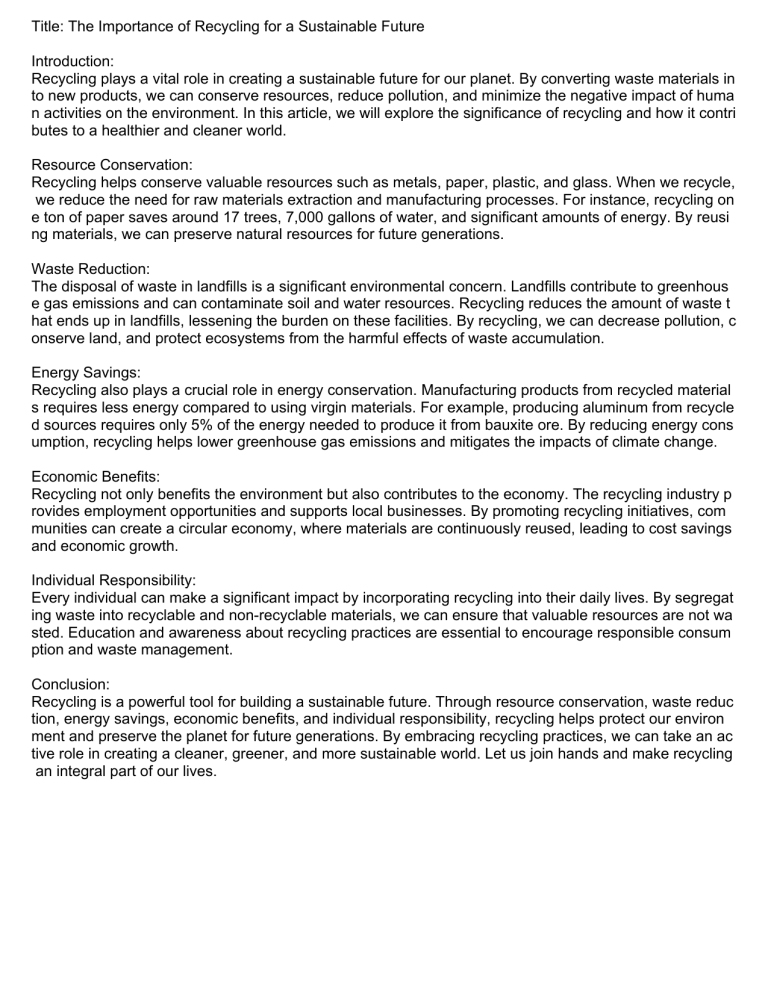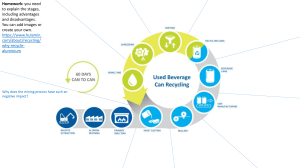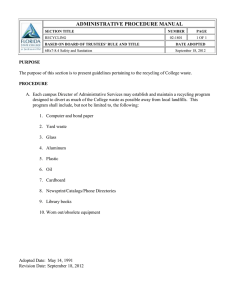The Importance of Recycling for a Sustainable Future
advertisement

Title: The Importance of Recycling for a Sustainable Future Introduction: Recycling plays a vital role in creating a sustainable future for our planet. By converting waste materials in to new products, we can conserve resources, reduce pollution, and minimize the negative impact of huma n activities on the environment. In this article, we will explore the significance of recycling and how it contri butes to a healthier and cleaner world. Resource Conservation: Recycling helps conserve valuable resources such as metals, paper, plastic, and glass. When we recycle, we reduce the need for raw materials extraction and manufacturing processes. For instance, recycling on e ton of paper saves around 17 trees, 7,000 gallons of water, and significant amounts of energy. By reusi ng materials, we can preserve natural resources for future generations. Waste Reduction: The disposal of waste in landfills is a significant environmental concern. Landfills contribute to greenhous e gas emissions and can contaminate soil and water resources. Recycling reduces the amount of waste t hat ends up in landfills, lessening the burden on these facilities. By recycling, we can decrease pollution, c onserve land, and protect ecosystems from the harmful effects of waste accumulation. Energy Savings: Recycling also plays a crucial role in energy conservation. Manufacturing products from recycled material s requires less energy compared to using virgin materials. For example, producing aluminum from recycle d sources requires only 5% of the energy needed to produce it from bauxite ore. By reducing energy cons umption, recycling helps lower greenhouse gas emissions and mitigates the impacts of climate change. Economic Benefits: Recycling not only benefits the environment but also contributes to the economy. The recycling industry p rovides employment opportunities and supports local businesses. By promoting recycling initiatives, com munities can create a circular economy, where materials are continuously reused, leading to cost savings and economic growth. Individual Responsibility: Every individual can make a significant impact by incorporating recycling into their daily lives. By segregat ing waste into recyclable and non-recyclable materials, we can ensure that valuable resources are not wa sted. Education and awareness about recycling practices are essential to encourage responsible consum ption and waste management. Conclusion: Recycling is a powerful tool for building a sustainable future. Through resource conservation, waste reduc tion, energy savings, economic benefits, and individual responsibility, recycling helps protect our environ ment and preserve the planet for future generations. By embracing recycling practices, we can take an ac tive role in creating a cleaner, greener, and more sustainable world. Let us join hands and make recycling an integral part of our lives.



